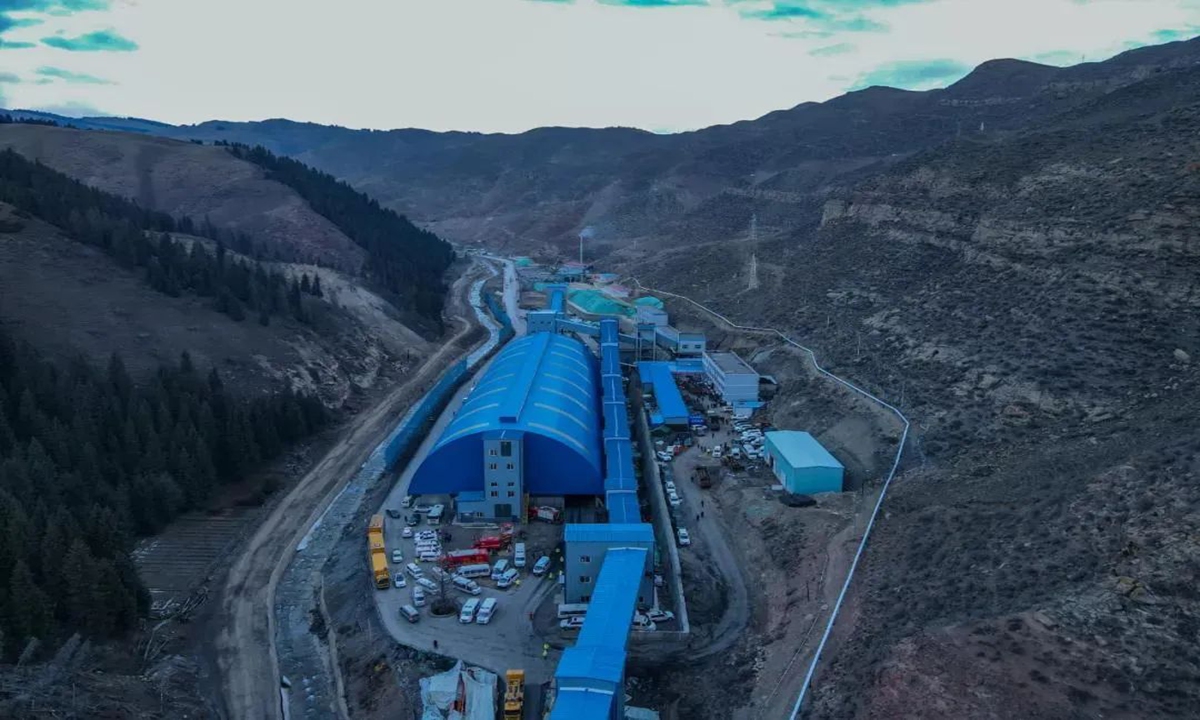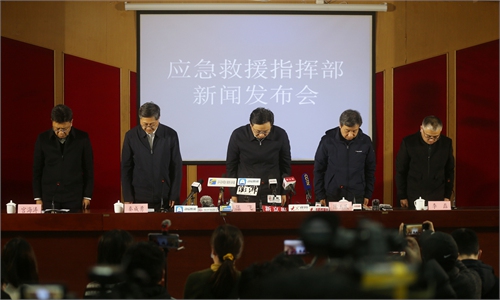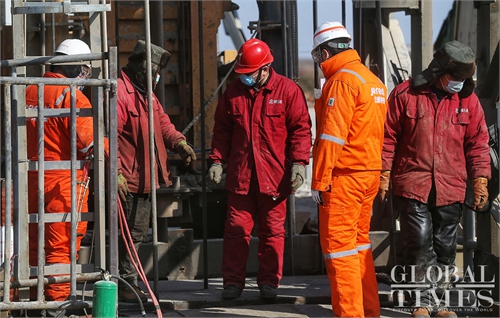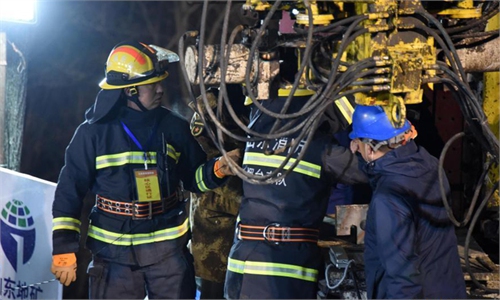UPDATE: All 21 trapped miners in Xinjiang coal mine flood accident have been located

The scene of the coalmine in Hutubi County, Changji Prefecture of Xinjiang encountered a sudden flood while in the process of technical transformation. Photo: CCTV
All 21 people trapped in a flooded coal mine in Northwest China's Xinjiang Uygur Autonomous Region on Saturday were located on Sunday morning, according to a China Central Television report.
The 21 trapped people are at three different locations. Twelve of them are located in one of the operating platforms, which reports said is 1,200 meters from the shaft entrance and in complex underground terrain, making rescue work difficult. Eight people are on another operating platform, while one is in an escape route.
Around 6:10 pm Saturday, a coalmine in Hutubi County, Changji Prefecture of Xinjiang encountered a sudden flood while in the process of technical transformation, resulting in underground power outages and communication interruptions.
At the time of the accident, there were 29 people working in the shaft, eight of whom later ascended the shaft on Saturday.
Immediately after the accident, the local authorities launched an emergency plan to organize a professional rescue team, requesting full rescue efforts to minimize casualties, strict prevention of secondary disasters, and an immediate investigation into the cause of the accident.
The National Emergency Management Department dispatched officials and rescue teams to the scene upon receiving the report, Xinhua reported on Sunday. As of Sunday noon, 1,484 people from emergency, fire, mine rescue, electricity, communications and other departments have arrived at the scene to carry out rescue work along with 25 ambulances and multiple groups of medical personnel.
The coalmine shaft was inclined, with a longitudinal length of 316 meters and a vertical depth of about 130 meters, the rescuers plan to send 10-meter pipes into the shaft and connect them for pumping.
Although a large number of iron pipes were sent to the scene after the accident, it was difficult to complete welding and transportation as the operating surface was less than 5 meters. The pipeline laying extension is currently underway, and pumping can start once the pipeline extension is completed, CCTV reported on Sunday morning. Full rescue efforts are currently underway.
"Floods are one of the five major disasters in coal mines. But compared to the more common disasters such as gas and coal dust explosions, the difficulty of rescue for flooding is lower, and trapped people also tend to have better survival conditions and more time. Rescue will be relatively easy once the passage is opened," Zhang Shoubao, an associate professor of safety engineering at the China University of Mining and Technology, told the Global Times on Sunday.
"Of course, the specifics also depend on the location and type of permeability that occurs," Zhang said.
Data showed that between 2000 and 2020, the number of deaths in coal mines nationwide fell from more than 5,000 to 225, and no coal mine gas accidents occurred in 2020.
However, China's demand for coal is now over 4 billion tons per year, while the safe production capacity is only about 3 billion, Zhang said. "With the need to produce more to fill the gap per year, the risks and difficulties of mining are bound to increase. In China, there is indeed room for improvement in coal production technology and safety levels," he noted.
After a goldmine explosion accident killed 10 miners in January in East China's Shandong Province, related government organs have stressed strict coal mine production safety inspections nationwide. The National Mine Safety Administration under the Ministry of Emergency Management has ordered a nationwide inspection of all mines lasting until March. The checklist includes production and safety equipment, proper handling of goods, routes and supplies for emergency evacuation.



